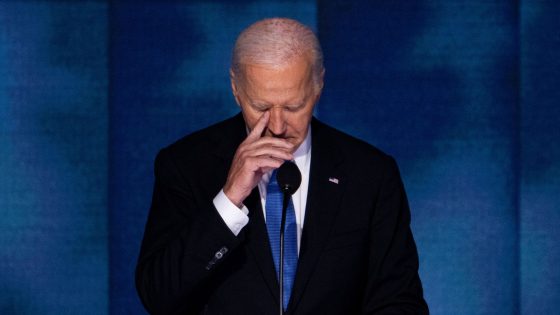Is it possible for a country to have the most physically demanding league in world football and still see its national team win an international tournament? England are about to find out at Euro 2024 as, once again, the Three Lions attempt to prove that the Premier League isn’t its biggest roadblock to achieving success.
Despite a status as a major football nation and an abundance of world-class players, England have failed to win a major tournament since the 1966 World Cup. But, ahead of their Euro 24 opener against Serbia in Gelsenkirchen on Sunday, they are considered one of the favourites to win it.
So after another season of two domestic cup competitions, a winter break so brief that most teams barely noticed it, and European football for the Premier League’s top clubs, do Gareth Southgate’s players have any chance of overcoming England’s age-old problem of fatigue?
Former UEFA president Michel Platini, one of the greatest players of his generation who captained France to glory at Euro 1984, famously said that England were “lions in the autumn, but lambs in the spring.” And that was before football even began to consider the effects of so-called “burnout.”
Sports science has now become so advanced that the fitness of footballers is monitored and assessed whenever they walk through the doors of the training ground. But a heavy workload is a heavy workload and England start Euro 2024 with only Roberto Martinez’s Portugal collectively having amassed more minutes in all competitions during the 2023-24 season.
Portugal’s players have clocked up 92,322 minutes from 1,216 games played this season. The 90,169 minutes that Southgate’s squad have run up come from 1,140 games, but nine of Portugal’s squad compete outside Europe’s top five leagues — England, Spain, Germany, Italy, France — with three players, including Cristiano Ronaldo, performing in the Saudi Pro League.
England’s 26-man squad is stacked with Premier League minutes, with Jude Bellingham (Real Madrid) and Harry Kane (Bayern Munich) the only two playing their own demanding campaigns in Spain and Germany respectively. And the intensity matters.
“We know from stadium-based motion trackers, which monitor how much a player runs, jogs, sprints and walks, that the Premier League is the most intense of all of the leagues,” Darren Burgess, FIFPRO Senior Adviser on Player Workload, told ESPN. “And it’s very clear that the 98th minute of a Premier League game is more intense than the 98th minute of a Saudi Pro League game.
“Some ex-players will say that they managed to play 60 games-a-season just 10 years ago without a problem, but the speed of the game has really increased in that time. We have the data to prove that. My work with FIFPRO studies player workload issues and I would say that England’s squad is at the higher end of the scale in terms of minutes played this season.
“The nature of the Premier League is one thing, the lack of a real winter break is another, while all of their top players will have played lots of games in Europe. So England are going into this tournament with definite risks, if not to the extent of burnout, but with issues of residual fatigue.”
Bruno Fernandes and Diogo Dalot, who amassed a combined 5,085 and 4,948 minutes for Portugal and Manchester United last season, registered more minutes than any of their English rivals in the Premier League. Ronaldo, at 39 years old, played for 5,059 minutes for Portugal and Al Nassr.
But Arsenal’s Declan Rice, Aston Villa’s Ezri Konsa and Ollie Watkins, and Manchester City duo Phil Foden and Kyle Walker all played more than 4,500 minutes for club and country prior to Euro 2024. The unknown quantity of Southgate’s squad is whether the long-term injury absences of Luke Shaw, Trent Alexander-Arnold, John Stones and Kieran Trippier last season will make them fresh for the tournament or drained by the psychological fatigue of rehabilitation.
For some, however, there is the possibility that the adrenaline rush of playing at Euro 2024 will compensate for any physical or mental fatigue.
“At the level they play at, I wouldn’t be concerned unless the players were showing outwards signs of burnout,” Andy Blow, CEO of Precision Fuel & Hydration and a sports scientist who worked with the Benetton and Renault Formula One teams, told ESPN. “Burnout and overtraining are different things, so you would be looking for things like tiredness, fatigue, injury risk.
“Burnout is physiological as well as physical. An obvious signpost of burnout is when an athlete displays a loss of interest in his sport or loses their get-up-and-go. But with a Euros, one of the biggest tournaments in football, the adrenaline and motivation will be flowing in the players, so I don’t see burnout being an issue.
“Load management is key. Elite marathon runners will generally only do a couple of marathons a year because it takes so long to build up and recover from them, physically and mentally, but football is different because they play more games and are able to manage that.”

1:23
Where Burley sees weakness in Euro favourites England
Craig Burley explains where England are most vulnerable, despite Gareth Southgate’s men heading into Euro 2024 as tournament favourites.
Southgate has taken England to the semifinals of the 2018 World Cup and the Euro 2020 final, and he has consistently steered clear of citing burnout as a concern at the end of a long season. But after watching Bellingham win the Champions League with Real Madrid this month, the manager made a point of resting his star midfielder for the pre-tournament friendlies against Bosnia & Herzegovina and Iceland.
“Let’s think about the individual,” Southgate said. “That’s what we’re always trying to do. Jude played right to the end of the season, beyond where everybody else has played. Psychological freshness will be good for him. He’s super professional, so he’s going to physically tick over.”
Bellingham’s workload is an issue that has already caught the eye of Burgess, now working with Australian rules football team Adelaide Football Club after spells in the Premier League with Arsenal and Liverpool.
“I spoke at a conference in London recently about player workload and delivered a scary statistic about Bellingham,” Burgess said. “He is still not 21 [Bellingham is 21 on June 29], but he has already played 18,571 minutes for club and country. By the time they were 21, Wayne Rooney had registered 15,481 minutes, while Steven Gerrard had managed 7,034. David Beckham had registered just 3,929 minutes.
“That’s a frightening number for Bellingham and it’s only going to get heavier for him because of the games he will be involved in with Real Madrid and England going forward.”

1:02
Pickford: England must enjoy pressure of being Euro 2024 favourites
Jordan Pickford speaks about England’s hopes of winning Euro 2024.
Bellingham is certain to play a key role for England in Germany. If he performs to his best, Southgate’s team could go all the way and be crowned European champions for the first time. And Blow, a former Triathlete and Ironman competitor, says he believes that England’s team of sports scientists can help navigate them through the fitness obstacles to succeed at Euro 2024.
“Load management is key,” he said. “Elite marathon runners will generally only do a couple of marathons a year because it takes so long to build up and recover from them, physically and mentally, but football is different because they play more games and are able to manage those demands.
“All sports are different. If you compare football to the schedule of NBA players, who play more often, have lots of air travel, late nights and early starts, etc, it’s a different challenge, so it’s all about managing that. But the England squad will have all the support staff to gauge the state of the players. They will be monitoring heart rate variability (HRV), sleep levels, mood — HRV is a big thing now.
“If it drops, it can often indicate that you are overtired or starting to feel unwell or under stress. It’s an easy thing to measure — most people will have it on their smart watch — but it is a very good indicator for all athletes. Football now has much more data and information than ever before, but it’s all about using it and applying it properly. But from a fitness perspective, I wouldn’t be worried about England’s workload going into the Euros.”
So will England be lions or lambs? They have plenty of miles in their legs already, but if the team behind the scenes can manage the players’ fitness and fatigue levels, England might finally be on course for international glory.
Source Agencies



